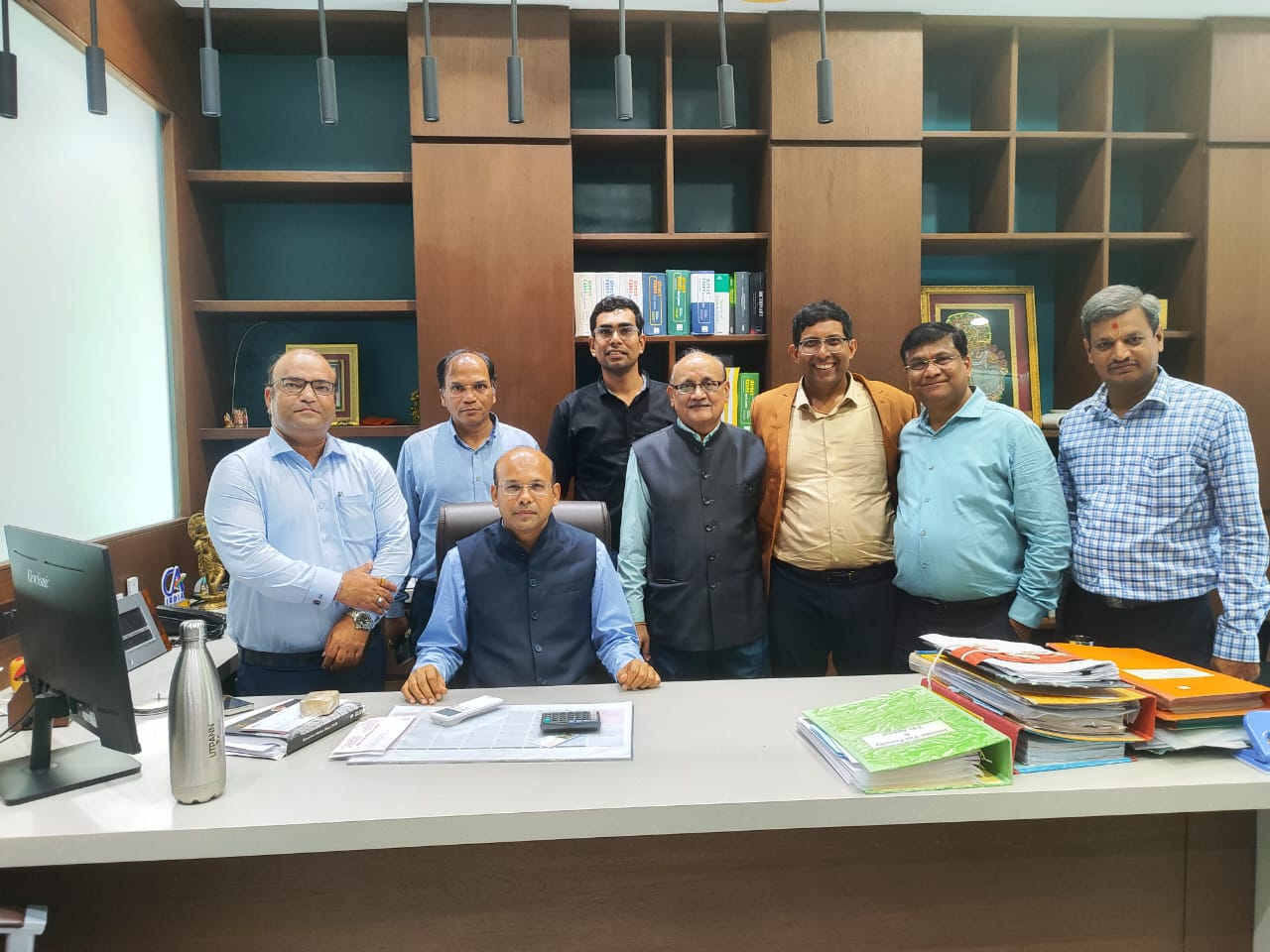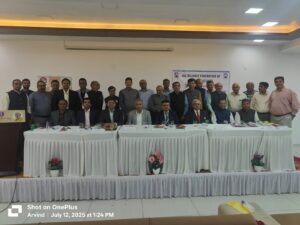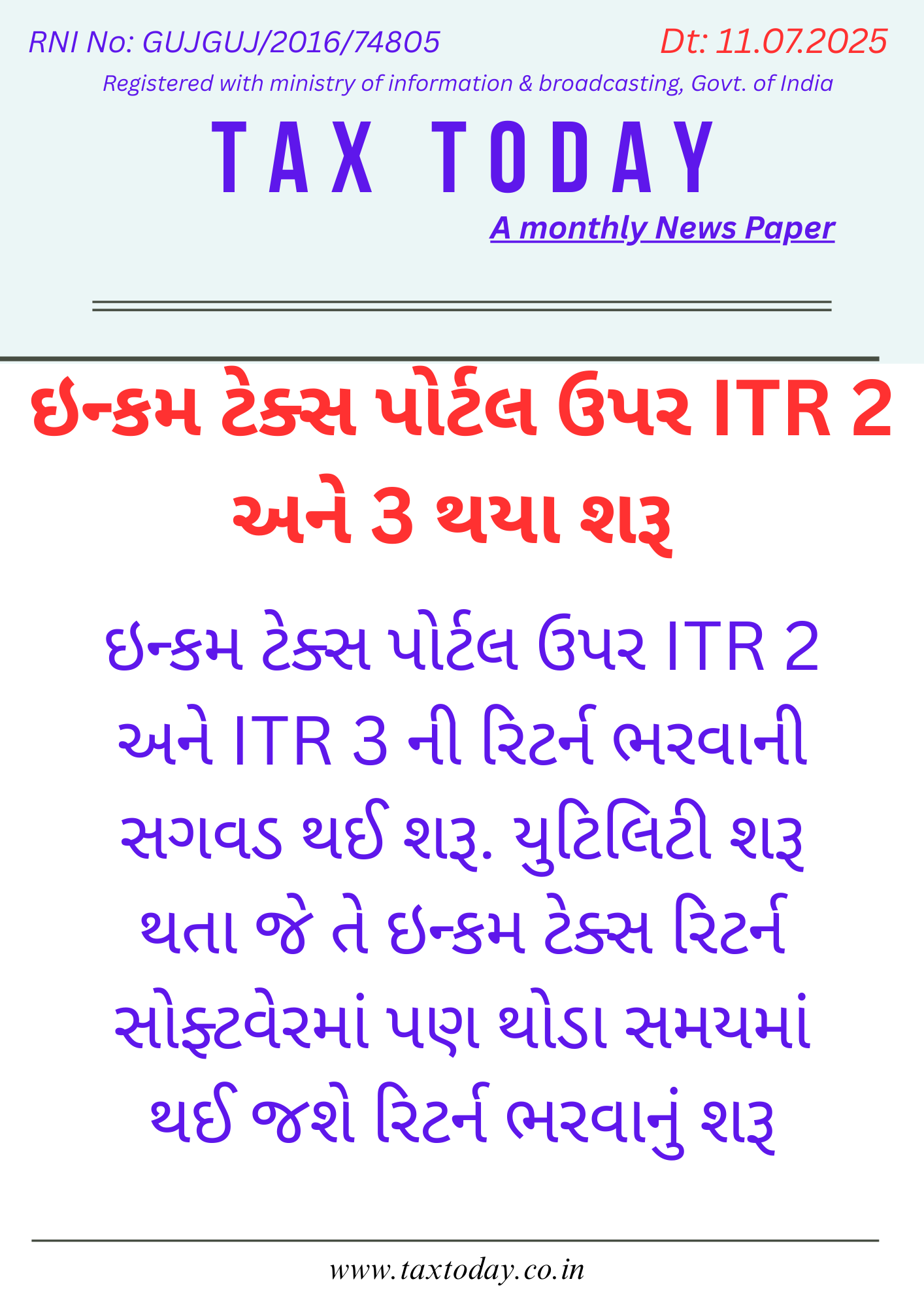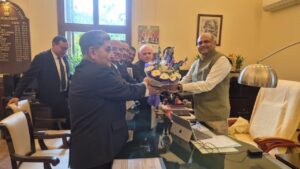Time limit for applying refund under GST is directory and not mandatory – A new twist under the GST regime

-By Hirak R. Shah, Advocate Gujarat High Court
- It has been almost six and a half years (6.5 years) but the Goods and Services Tax regime never fails to amaze tax payers and businesses across the country. In recent times where businesses across the country have found themselves inundated with Show Cause Notices (SCN) from GST Authorities due to a sudden surge in issuance of Notifications and clarifications, timely issuance of GST refund remains an everlasting issue for which businesses and exporters constantly pray.
- The present articles delves into the relevant legal provisions of refund under the Central Goods and Services Tax Act and a recent ruling of Hon’ble Madras High Court which held that the timelimit for applying refund under Section 54 is directory and not mandatory.
Relevant Legal Provisions of the Central Goods and Services Act, 2017
- The relevant legal provisions for in-depth analyzing the refund provision is as under:
Section 54: Refund of Tax
(1) Any person claiming refund of any tax and interest, if any, paid on such tax or any other amount paid by him, may make an application before the expiry of two years from the relevant date in such form and manner as may be prescribed:
Provided that a registered person, claiming refund of any balance in the electronic cash ledger in accordance with the provisions of sub-section (6) of section 49, may claim such refund in the return furnished under section 39 in such manner as may be prescribed.
Relevant discussion and way forwards
- Recently the Hon’ble Madras High Court in the case of M/s Lenovo (India) Pvt Ltd vs Joint Commissioner of GST (Appeals-1) & Others vide judgement dated 06.11.2023 [W.P.Nos.23604, 23605 and 23607 of 2022] held that the time limit prescribed under section 54 of the CGST Act is directory and not mandatory.
- Extract of the relevant paragraphs from the Judgement are as follows:
“15.7 Thus, a reading of the Section 54 (1) of CGST Act would make it clear that the assessee can make the application within two years. The terms used in said Section ”may make application before two years from the relevant date in such form and manner as may be prescribed”, which means that the assessee may make application within two years and it is not mandatory that the application has to be made within two years and in appropriate cases, refund application can be made even beyond two years. The time limit fixed under Section 54 (1) is directory in nature and it is not mandatory. Therefore, even if the application is filed beyond the period of two years, the legitimate claim of refund by the assessee cannot be denied in appropriate cases.
15.8 In the present case, the application was filed within two years and therefore, the question of making claim after two years does not arise even assuming AO made endorsement after two years, the same would in no way debar the claim as barred by limitation. Further, even Rule 90 (3) of CGST Act permits to make fresh application, which means that in appropriate cases, the Officer concerned can permit the refund application even beyond the period of limitation. Therefore, I do not find any substance in the submission made by the learned Senior Standing Counsel for the respondent and both respondents have miserably failed to consider the said aspect while passing the impugned orders and hence, the same are liable to be set aside. Hence, this Court holds that when the petitioner has filed application, which is within a period of limitation, viz. 2 years as stipulated under Section 54(1) of the CGST Act, the delay in filing the supporting document at the time of filing of reply/personal herein would only extend the time limit to pass an order under Section 54 (7) of the CGST Act and non-submission of documents at the time of filing application for refund cannot be deemed to have filed with a delay, since there had been a delay in obtaining the endorsement owing to Covid-19, the petitioner could not produce the same at the time of filing application, however, produced the same at the time of personal hearing.”
Analysis and Comments
- The aforesaid ruling in case of M/s Lenovo (India) Pvt Ltd has opened floodgates for many exporters who were not able to file refund application due to lapse of the time limit of 2 years prescribed by the statute.
- However, it is pertinent to note that the said ruling does not provide a blanket concession intended by the Hon’ble Court as the words used are “in appropriate cases” at para 15.7 of the judgement. The tax payers may take benefit of this in genuine cases only. Further, the observations made at para 15.5 and para 15.6 of the judgement based on CBDT circular are very useful to the assessee – the officers should be prompt in giving due refund as much as they are in collecting tax.
- One aspect which seeks interpretation and the basis behind which the Hon’ble Court had passed such ruling, which in my respectful opinion, is the use of the word “may” is made because claiming of refund is an option available to the assessee and not a mandate. Therefore, using the words “shall” may have been considered inappropriate at the time of drafting of the statute. However, the Hon’ble Madras High Court has linked the word “may” to the time limit for filing refund application. In view of this, the Government may be forced to consider amending the refund provisions to the extent of making it amply clear that if a registered person wants to file a refund application, such application shall be filed within a period of 2 years from the relevant date only and no such refund application shall be filed after the expiry of 2 years from the relevant date.
- Another possible scenario which may arise is that the Department may prefer an appeal before the Hon’ble Supreme Court against the said Madras High Court ruling and the Hon’ble Supreme Court may very likely grant stay of the said Ruling or otherwise as in particular facts of the present case of M/s Lenovo (India) Pvt Ltd, it was the fault of the Department in granting refund.
- Only time will tell the ultimate fate of the final outcome before the Hon’ble Supreme Court and whether the assessee – M/s Lenovo (India) Pvt Ltd shall be granted refund in their particular case. The real question which is prejudicial to the Department is the interpretation of the time limit as prescribed under Section 54 of the CGST Act and that whether the same is directory and not mandatory or otherwise.
The views prescribed hereinabove are strictly based on the author’s own interpretation of the legal provisions and their implications and do not have any legal impact.
(Author is a well known lawyer precising at Ahmedabad in Gujarat High Court and Litigation matters including that of Tribunal)






